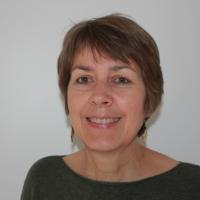Course Overview
This course tackles the question of how to combine traditional and modern media in foreign language classes in meaningful ways in order to support sustainable language learning processes and encourage students’ development as human beings. The different qualities of various media will be discussed in order to provide foreign language teachers with criteria which will enable them to decide which media to use for which age group and for which purpose.
Taking a vertical perspective, we will present ideas about how to support and add to the development of a healthy media literacy in our students, taking into account the needs and possibilities from classes 1 to 12. We follow the thesis that the development of media literacy and an understanding of digital media in adolescent students is based on the conscious use of stories and images by teachers in the lower classes. During the first five weeks of the course we will provide a variety of material: didactical thoughts, on the role of media, pedagogical background information, shared examples of good practice and methodological material. Continuous journaling exercises invite your reflective activity, aiming at connecting the provided input with your own experiences and teaching reality.
Since learning is a social activity to a great extend, taking part in collegial exchange and communication will increase the chance for lasting change in your teaching practice. Hence the element of collegial exchange constitutes an important part in the course. In a recent article in the Huffington Post, Otto Scharmer (Theory U) talks about the challenge of overcoming the knowing-doing gap which many of you will know all too well. Hence it is our aim to also implement some tools and habits, e.g. the method of action research, which can help to ensure that new and good ideas don’t stay in the realm of thought but really find their ways into practice – in ever new and creative ways. Therefore the course will offer proposals for personal research which will give you the possibility to practice some research methods and gather experiences yourself which can be exchanged with colleagues in the discussion forum and hence contribute to a growing body of knowledge within a learning commmunity.
Course Content
- Overview of this week’s programme
- Community circle meeting
- Journaling: Media literacy
- Media literacy and the curriculum
- Media in FLL
- Analogue or digital
- Journaling: Observations
- Using games in the FL classroom
- Journaling: The Internet
- Information management
- YouTube: a source for authentic material
- Introducing blogging in class 9 (or 10)
- Balancing educational tasks – changing perspectives
- Research task
- Welcome to this week’s programme
- Journaling: It all starts with storytelling
- Voices: Storytelling in the lower school
- Voices: TPRS – storytelling in the middle school
- Voices: Using storytelling in class nine
- Digital storytelling
- Journaling: Every picture has a story to tell
- The potential of art – postcard activities
- Art, life and grammar – a postcard project
- Language, speech and images
- Research task
- Community circle meeting
- Welcome to week 3
- Listening – a quality of its own
- Sources of authentic speech
- Listening awareness
- Classroom phrases, picture dictations, discussions and talks
- Digital audio material
- Voices: Working with radio plays in class 9
- Classroom material (Making a radio play)
- Research task
- Community circle meeting
- Welcome to week 4
- Enjoying the new
- Being critical – becoming literate
- Didactical thoughts
- Voices: Media block in class 11
- Preparations for a newspaper project
- The actual work process in class
- Creating your own newspaper
- Voices: By-products of the block
- Voices: Bilingual, cooperative media project
- Voices: Group work, layout, print and presentation
- Journaling and voices: Advertisement
- The world of advertising
- Lesson plan and feedback sheet
- Voices: The power of collegial team work
- Research task
- Community circle meeting
- Welcome to week 5
- Journaling
- Films in foreign language lessons
- Developing film literacy
- Voices: Working with film in the upper school
- Starting a film project
- Camera work
- Opening scenes
- Establishing characters
- Journaling
- The storyboard
- Final research task
- Forschungsaufgabe für Studierende
- Community circle meeting
Instructors
Ulrike Sievers was born in the North of Germany. She studied English and Biology and has taught both of these subjects in Waldorf schools with great enthusiasm for over 20 years. Her main interest is in how school education can create a space in which children and young people can grow up in a healthy way, develop a love for nature and the living world and become interested in other people, their cultures and their languages. She has also contributed nationally and internationally to teacher education and offers courses for students at the Waldorf seminar in Hamburg and Stuttgart.


